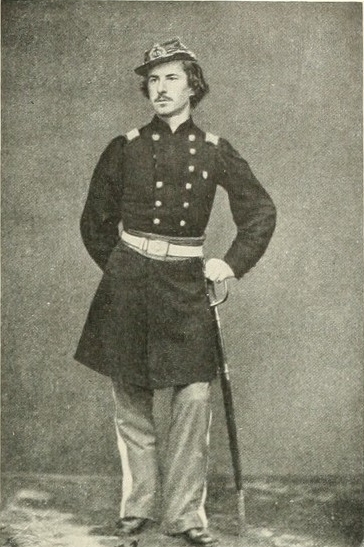Long Before The Beatles, There Was Elmer
 Just prior to the firing on Fort Sumter in Charleston, South Carolina, triggering the Civil War in 1861, one of the most famous men in America was Elmer Ellsworth.
Just prior to the firing on Fort Sumter in Charleston, South Carolina, triggering the Civil War in 1861, one of the most famous men in America was Elmer Ellsworth.
Never heard of him?
In 1861, everyone knew his name. This entertainer was received with the same kind of mania that New Yorkers would not see for another one hundred years when the Beatles came to America in the early 1960s. At least that’s how Adam Goodheart describes the man’s New York reception in the fascinating book, 1861: A Civil War Awakening. Appropriately, I listened to most of the book on CD while driving to Charleston this past month.
Like the Beatles, Ellsworth was known, in part, for his hair. “His picture sold like wild fire in every city of the land,” wrote John Hay, Abraham Lincoln’s private secretary. “School girls dreamed over the graceful wave of his curls.”
So how did he make his fame?
Elmer Ellsworth decked himself out, as well as his group of cadets, in elaborate, colorful uniforms that would have put the Beatles’ Sergeant Peppers Band to shame. The group, known as the United States Zouove Cadets of Chicago, performed some of the most acrobatic and intricate military drills ever seen. As Goodheart describes it, the Chicago cadets did flips while carrying rifles and performing intricate maneuvers. Think Jackie Chan meets John Philip Sousa.
One eyewitness described it this way:
“They would fall to the ground, load their guns, fire, turn over on their backs, fire again, jump up, run a few steps, fall, then crawl on their hands and feet as silent and quick as cats, climb high stone walls by stepping on each other’s shoulders, making a human ladder.”
Another added this observation:
“The cadets marched and formed different shapes: crosses, parallelograms, circles, and squares. During a skirmish drill, they demonstrated a ‘fire in advance,’ in which two lines formed. The front line fired their weapons, then opened ranks, and the rear lines charged forward with bayonets affixed to loaded muskets. The new front line fired their weapons while the rear line reloaded.”
Ellsworth went on to work in a law office in Springfield, Illinois, alongside another man who had emerged from obscurity around the same time–Abraham Lincoln. They became friends, and Ellsworth helped with Lincoln’s 1860 campaign for president. But Ellsworth’s life would soon end with one final flourish.
On May 24, 1861, the day after Virginia seceded from the Union, he led a regiment to capture the port of Alexandria. But when they entered an inn, the Marshall House, to take down the Confederate flag, the innkeeper met them with a double-barreled shotgun, hitting Ellsworth in the chest with such force that Ellsworth’s medal became embedded in his body.
Ellsworth became the first Union officer to die in the Civil War. The North went into mourning, flags flew at half-staff, and his friend, Abraham Lincoln, brought his body to the White House to lie in state.
By Doug Peterson
